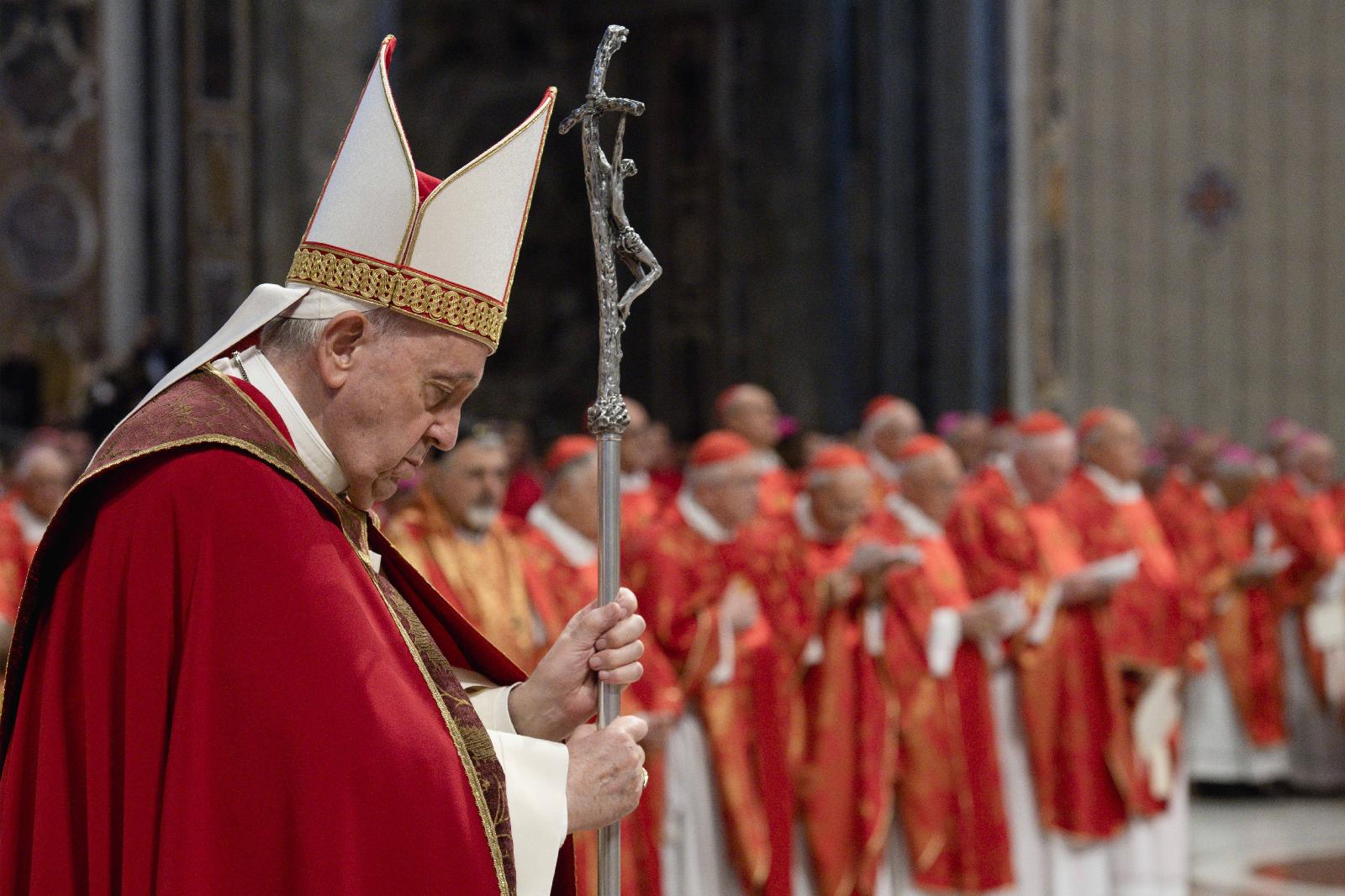This passage is unique to Luke’s gospel. He’s already described how Jesus sent out the twelve apostles to preach, as the other gospels do; but, now, unlike the others, he inserts an account of 70 others being sent out to do exactly the same. Why?
Remember that Luke’s gospel is the first of two volumes: his second volume, the Acts of the Apostles, describes how the Christian faith was spread throughout the whole empire, ending at the centre, Rome, known even before Christianity as Sacred and Eternal. The preaching of the gospel to the non-Jewish world was of prime importance and interest to Luke who, ever the historian, knew that it had been achieved by many other disciples, apart from the twelve. (Seventy, like twelve, is also a symbolic number: while the number twelve represents the twelve tribes of Israel, in the book of Genesis seventy represents the world of the Gentiles, corresponding to the 70 grandsons of Noah who, after the flood “spread abroad over the whole earth” (Gen 10:32): the entire world, in other words.)
So, here Luke is establishing three things: first, the credentials of those who’ve successfully spread the gospel to the Gentile world; secondly, that the responsibility of preaching that gospel isn’t restricted to a chosen few but belongs to us all. (We are numbered among the 70, in other words). And, finally, that the mission Jesus gave to his followers wasn’t to gather in the twelve tribes of Israel alone, but to bring together every human being under the sun.
In other words, the harvest to which Jesus in this gospel calls labourers is not limited to a particular race, culture or people: it is nothing less than the whole of humanity. Of the three, that last point is the most important. Luke is grappling with what was from the very beginning the most critical problem in the early Church’s understanding of its own identity: namely, quite literally, its catholicity.
It’s not easy for us now to appreciate how difficult it was for the first disciples – all Jews, remember – to take that on board. Right up the time that Jesus left them, they were fixated on the mission to Israel. At their very last meeting with him, as Luke records in Acts, they were still asking: “Has the time come for you to restore the kingdom of Israel?” But his very last words to them, again according to Acts, were unequivocal: “You will be my witnesses… to the ends of the world.”
Luke, then, is driving home the truth that the Catholic Church isn’t universal by historical accident: it is its very essence is to be universal, for all of humanity, in all ages and in all parts of the globe, speaking many languages but confessing one truth. That was powerfully articulated at the Second Vatican Council, when in Lumen Gentium it spoke of the Church as the universal sacrament of salvation for all humanity.
But catholicity is not an end in itself, as it might be for a purely human institution, for whatever reason. Macdonalds, for instance, was until recently in every country in the world. Catholicity implies unity and communion; the message of the Church is the unity of all humankind in Christ. As the universal sacrament of salvation, the Church, the Body of Christ, is to be a living sign of what the entire human race is called to be, and what, by grace it can become.
In contrast to the world we’ve fashioned, a place of conflict, violence and war, fuelled by envy and pride, the Church is to hold out the possibility of nothing less than a new creation, in which, as St Paul reminds us in the second reading, outward differences count for nothing, and no one is excluded.
But the Church is called not only to preach universal unity and peace but to live it. And that, unlike words alone, doesn’t come cheap. If the Church is true to the message entrusted to it, it will always encounter opposition and hostility. It will encounter, in other words, the Cross, as Christ himself did, and as he predicted we would, for the same reason: for preaching a gospel of communion and peace in a world riven by rivalry and the abuse of power.
As Terry Eagleton once pungently expressed it: according to the gospels, if we follow Jesus and don’t end up on the Cross, we’ll have some explaining to do. The world, of course, will never get it: how could real freedom and true happiness be found in selfless generosity, sympathy, respect for life? Such virtues will always be derided as defeatism and the exaltation of weakness, as Nietzsche, for one, thought.
The relentless drive for prestige and success has no room for compassion for the weak and defenceless. The world will always find the Christian Gospel a jarring and unsettling contradiction: as much is evident from the reaction of many to the Church’s absolute adherence to the sanctity of human life, at every stage of its existence, from womb to tomb. The Gospel radically subverts the ruling illusions of the world; if it doesn’t, it’s a sure indication that we’re not preaching the authentic Gospel.



 Loading ...
Loading ...
What do you think?
You can post as a subscriber user ...
User comments (0)